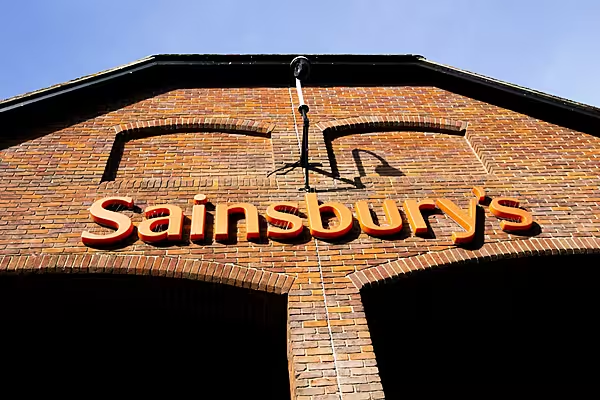Britain's Sainsbury's, chastened by the blocking of its takeover of rival supermarket group Asda, said it would cut prices and increase investment in its stores and technology as it seeks to redress a decline in underlying sales.
Sainsbury's plan for a £7.3 billion ($9.5 billion) takeover of Asda, owned by Walmart, was blocked by Britain's competition regulator last week. It said the deal would have seen prices rise, not fall as Sainsbury's and Asda had argued.
With the deal thwarted Sainsbury's Chief Executive Mike Coupe, its main architect, is under pressure to reassure investors it can prosper on its own.
Net Debt Reduction
Sainsbury's said on Wednesday it would invest to improve more than 400 of its supermarkets this year, reduce net debt by at least £600 million over the next three years, maintain its dividend policy and cut core commodity prices.
"I am confident in our strategy and also clear on what we need to do to continue to evolve the business in a highly competitive market where shopping habits continue to change," said Coupe.
Its shares rose 3% after a 29% drop in the last six months.
The deal's failure has raised questions over Coupe's future, but he told the BBC he would not quit and had not been asked by his board to leave Britain's second-biggest supermarket group.
"I'm sticking to the company, I'm very proud of the organisation I run," he said.
Sainsbury's said £46 million of transaction costs were incurred in relation to the proposed combination with Asda.
Profit Beats Forecast
Coupe noted that £4.7 billion of Sainsbury's total annual revenue of £32.4 billion now comes from its online businesses.
He said it was increasing investment in technology to make shopping across Sainsbury's, general merchandise retailer Argos and Sainsbury's Bank as quick and convenient as possible.
Sainsbury's fourth quarter to March 9 like-for-like sales fell 0.9%, having declined by 1.1% over the Christmas period. They fell 0.2% over the full 2018-19 year.
Underlying pretax profit for the year did, however, rise by a better-than-expected 7.8% to £635 million helped by synergies from the Argos business it purchased in 2016, and the total dividend increased 7.8% to 11.0 pence.
"Retail markets are highly competitive and very promotional and the consumer outlook continues to be uncertain," Sainsbury's said.
Sainsbury's wanted to combine with Asda to boost its scale and buying power so it could better compete with market leader Tesco, fast growing German-owned discounters Aldi and Lidl, and Amazon.
News by Reuters, edited by Donna Ahern Checkout. Click subscribe to sign up for the Checkout print edition.





